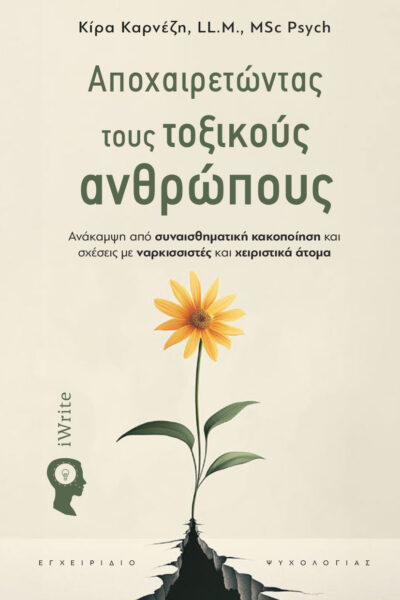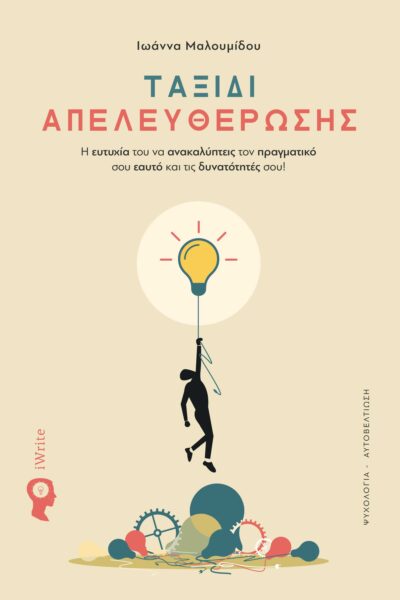Ο καθρέπτης ως ψυχοθεραπευτικό εργαλείο
Ο καθρέπτης είναι ένα εργαλείο που δε λείπει από κανένα σπίτι. Εκτός όμως από την πρακτική χρήση του, μπορεί να χρησιμεύσει και ψυχοθεραπευτικά. Εάν δεν το γνώριζες, τότε υπάρχει ένα βιβλίο αυτογνωσίας ιδανικό για σένα!
Σύμφωνα με τη θεωρία αυτο-επίγνωσης ένα άτομο, τείνει να συγκρίνει τον εαυτό του με κάποια ιδανικά πρότυπα. Όπως για παράδειγμα όταν παρατηρεί την αντανάκλαση του εαυτού του από τον καθρέπτη.
Η σύγκριση αυτή του εαυτού με τα ιδανικά πρότυπα μπορεί να έχει ανεπιθύμητα αποτελέσματα, ενεργοποιώντας αρνητικά συναισθήματα. Σε έρευνες φάνηκε ότι αυτό ισχύει σε μικρότερο βαθμό, αφού η έκθεση σε καθρέπτη μειώνει τις αυτοκριτικές εκτιμήσεις στον φυσιολογικό πληθυσμό. Επίσης βελτιώνει τη θετική αυτο-επίγνωση σε άτομα με αυτισμό.
Self mirroring
Ο Mahoney (1991) ζήτησε από τους ασθενείς του να κοιτούν σε έναν καθρέπτη ενώ περιέγραφαν τις εμπειρίες τους. Αυτό σε συνδυασμό με έναν διάλογο με τον εαυτό τους. Στο «self-mirroring», ζήτησε από τους ασθενείς να παρακολουθήσουν βίντεο του προσώπου τους ενώ μιλούσαν για ένα σημαντικό γεγονός της ζωής τους .
Το βίντεο, έδειξε να βελτιώνει την ικανότητα των ασθενών να αναγνωρίζουν τη συναισθηματική δυσφορία. Έχει τύχει να δούμε και εμείς τον εαυτό μας σε βίντεο και να παρατηρήσουμε πράγματα που δεν είχαμε υπόψη. Για παράδειγμα, πόσο θυμωμένοι δείχνουμε. Ο καθρέπτης όμως έχει μεγαλύτερη αμεσότητα, προσβασιμότητα, αλλά και μοναδικότητα, αφού δεν έχει τη δυνατότητα του replay.
Ενσυναισθητική ομιλία
Οι Petrocchia et al. (2016) βρήκαν ότι μια ολιγόλεπτη, γεμάτη συμπόνια, ενσυναισθητική ομιλία μπορεί να έχει ακόμα πιο αυξημένα θετικά συναισθήματα εάν γίνεται μπροστά σε καθρέπτη. Ο καθρέπτης ενισχύει τη «συμπονετικού τύπου» συνομιλία με τον εαυτό μας μέσα από την επαφή με ένα πρόσωπο που βιώνει μια συναισθηματική εμπειρία πόνου. Η αύξηση αυτή των θετικών συναισθημάτων έχει να κάνει με το σύστημα κινήτρου. Αυτό αποτελεί τον στόχο των εστιασμένων στη συμπόνια θεραπειών (compassion-focused interventions).
Η έρευνα έχει δείξει ότι από τη γέννηση ο εγκέφαλος διαθέτει εξειδικευμένα συστήματα που ανταποκρίνονται σε κοινωνικά ερεθίσματα, όπως ο ζεστός τόνος φωνής, οι εκφράσεις προσώπου, το άγγιγμα κ.λπ., και τα ερεθίσματα αυτά αποτελούν ισχυρούς ρυθμιστές της διέγερσης και των συναισθημάτων. Έτσι, ο καθρέπτης δείχνει να αποτελεί ένα αποτελεσματικό πρόσθετο στοιχείο σε αυτά τα πειράματα «συνομιλίας με τον εαυτό» (self-talk exercise), επειδή συνδέεται με θετικά συναισθήματα που δρουν προστατευτικά έναντι της υπερβάλλουσας αυτοκριτικής.
Η επίδραση του καθρέπτη
Έρευνες έδειξαν ότι οι σωματικοί δείκτες συμπόνιας αυξάνονται σημαντικά όταν οι συναισθητικές φράσεις λέγονται μπροστά σε έναν καθρέπτη. Μια εξήγηση έχει να κάνει με την ικανότητα του καθρέπτη να αυξάνει την ποσότητα των θετικών κοινωνικών μηνυμάτων που προωθούνται (φωνή, έκφραση προσώπου, βλέμμα), αυξάνοντας έτσι τη συναισθηματική απάντηση που εκλύεται (μη λεκτική έκφραση της αίσθησης ασφάλειας).
Παρατηρώντας επίσης το πρόσωπό μας στον καθρέπτη, ενεργοποιούμε το σύστημα των καθρεπτικών νευρώνων. Αυτό διευκολύνει περαιτέρω τη βίωση αυτο-συμπόνιας.
Η έκθεση στο πρόσωπό μας διευκολύνει την ταυτοποίηση με εκφράσεις προσώπου που έχουν να κάνουν με την ενσυναισθητική διαδικασία. Μια άλλη άποψη που εξηγεί την ενισχυτική επίδραση του καθρέπτη στην έκφραση θετικών συναισθημάτων συνδέεται με τις λεγόμενες «αντικειμενοποιητικές» ιδιότητες του καθρέπτη. Όταν δηλδή παρατηρούμε την αντανάκλασή μας, βιώνουμε τον εαυτό μας ως εξωτερικοί παρατηρητές. Αυτό είναι που διευκολύνει μια πιο αντικειμενική αίσθηση των πραγμάτων.
Ψάχνεις το ιδανικό βιβλίο αυτογνωσίας;
Βρες το βιβλίο «Ο καθρέπτης & εγώ» από τις εκδόσεις iWrite














